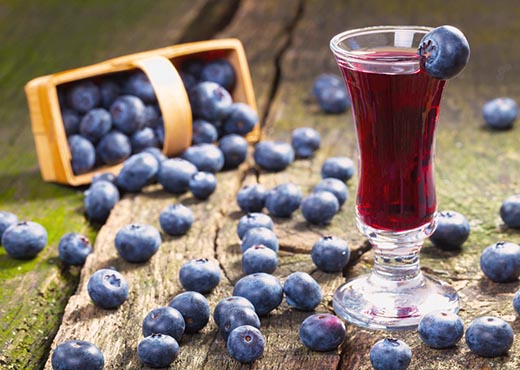 Can I add liqueur to my wines? I have added brandy to some, blackberry, peach. Will it change the taste?
Can I add liqueur to my wines? I have added brandy to some, blackberry, peach. Will it change the taste?
Tino — NY
—–
Hello Tino,
Absolutely, you can add liqueurs to your homemade wine. I always like to encourage experimentation. Without it, nothing moves forward.
Adding a brandy or liqueur to a homemade wine puts it in the category of a fortified wine. Brandy is added to wines to produce Ports, Sherrys, Maderas and others. They typically will run around 18% to 21% alcohol. This is not uncommon at all. On a commercial level, adding liqueurs is not commonly done, but certainly has some great potential. Why couldn’t you add peach schnapps or peach brandy to a peach wine? It would raise the alcohol and intensify the flavor.
Obviously, you have to use some common sense in your combinations. The flavors needs to be complimentary to one another. For example you wouldn’t want to use orange brandy with a blueberry wine. You want to stay within reason.
I would also suggest that you take baby-steps. Do a bench-testing, first. Add the chosen liqueur to a sample of the wine. This does two things: 1) it allows you to establish a dosage ahead of time that can later be applied to the entire batch; 2) it acts as a safety-net; it you accidentally add too much to the wine sample, you can put the sample back with the rest of the batch and start all over.
 As a side note, we sell liqueur flavorings for transforming vodka, brandy and the likes into various liqueurs. They come in tiny bottles for making a quart or two at a time. You just add them to the alcohol base, sometimes with sugar, to create an array of liqueurs.
As a side note, we sell liqueur flavorings for transforming vodka, brandy and the likes into various liqueurs. They come in tiny bottles for making a quart or two at a time. You just add them to the alcohol base, sometimes with sugar, to create an array of liqueurs.
Home winemakers will use liqueur flavorings to enhance the flavors of their wine. For example, you can use the pear brandy liqueur flavoring directly to a pear wine to increase the wine’s fruitiness. It will not raise the alcohol level of the, but it will add a noticeable amount of flavor.
Also realize, that it is possible to have too much alcohol in a wine. A wine can go out of flavor balance if it becomes too hot or alcoholic. When this happens the wine will start to taste more watery, less flavorful, less fruity. This is because of the numbing effects that alcohol can have on the senses, both taste and smell. This is one good reason to look at liqueur flavorings instead of liqueurs. You get the flavor without the heat.
Regardless, I think adding liqueurs to homemade wines is a fantastic way of playing around with the flavors in your wine. I can be valuable. Not only can you come up with something spectacular, you get to exercise your senses in a way that will only help you with future batches of homemade wine. Just remember to take careful steps, and do sample tests before moving forward with the whole batch of wine.
Happy Winemaking,
Ed Kraus
—–
Ed Kraus is a 3rd generation home brewer/winemaker and has been an owner of E. C. Kraus since 1999. He has been helping individuals make better wine and beer for over 25 years.

Can I oak a vinoles grape wine. I want to do something to make it different since I have 2 recipes going of the same juice.
Joyce, Vignoles are not typically associated with long barrel aging. They produce fruity, off-dry to semi-sweet wines, in the same vein as wines from Rhineland. With that said, oaking some Vinole could be very interesting. I would suggest 2 to 4 ounces of American toasted oak chips in the wine for a few months.
What would be better raspberry liqueur in a reisling or raspberry brandy or depending on what you are looking for as a result.